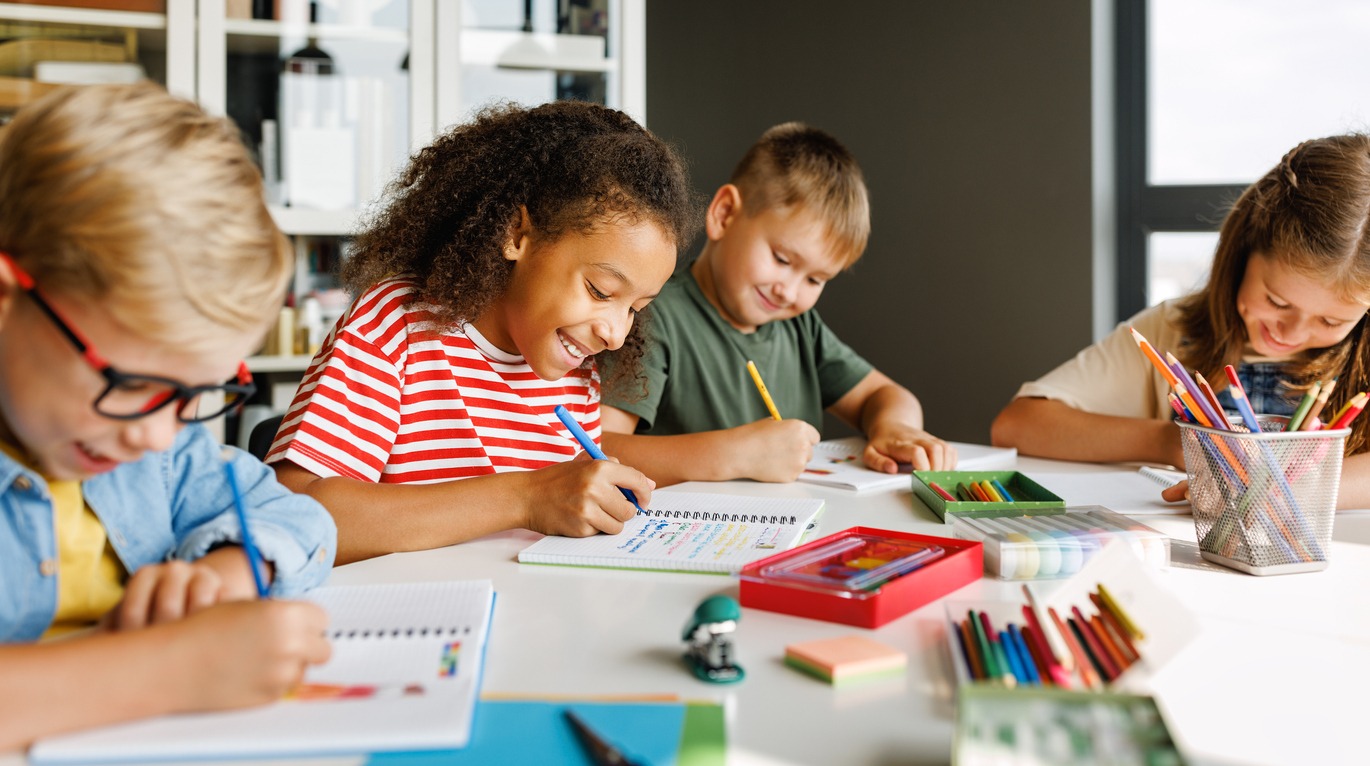“Yes, it's for me that I learn!”
Learning
Adapting to any situation
Meeting the needs of today's and tomorrow's society
The Da Vinci School uses a well-defined, formalized pedagogical framework, with the essential aim of preparing children to be able to adapt to any situation. The recruitment of teachers is particularly selective.
A comprehensive evaluation system is in place throughout the year, both to measure the child's level of learning and progress, and to improve the teacher's practice.

Learning to adapt
The da Vinci school responds to the needs of today's and tomorrow's society: learning to adapt.
A player in his or her own learning
Da Vinci's commitment is to make children active participants in their own learning.
Competent teachers
Da Vinci maintains high standards for the teachers who join our team.
The teacher adapts to the child to teach him to adapt
Selective recruitment of teachers

Da Vinci School responds to the needs of today's and tomorrow's society: learning to adapt
Every parent is faced with many uncertainties concerning their child's future: what skills will they need and which will be the most relevant? What kind of job will he or she have? Each child will experience a wide variety of professional and social situations.
In this case, adapting for the child who will become an adult means being ready to learn in the face of each new situation, as the need arises.
In addition to bilingualism, it's important to establish academic knowledge
At Da Vinci, in addition to bilingualism and as in any other school in France or the world, it's important to establish academic knowledge, which involves acquiring reading and writing skills, learning and memorizing grammatical and spelling rules, regularly practicing mental arithmetic, acquiring mathematical concepts, memorizing poems and lessons, writing a variety of texts, and making and presenting presentations.
But the Da Vinci School also teaches students to adapt to a wide variety of situations. And in this case, the approaches used by the child, and those suggested by his or her teacher, are just as important as the knowledge acquired.
At the Da Vinci School, in both French and English, it's as much a question of passing on knowledge that's already been structured, as it is of granting children a sufficient degree of autonomy to enable them to take charge of their own actions and progress within the classroom.
Da Vinci's commitment to making children active participants in their own learning process
In practice at Da Vinci, from the very first years of kindergarten onwards, the teacher teaches children to react to situations, mainly through games for the youngest children. The teacher observes children's interests and the obstacles they encounter. They respond to requests with appropriate suggestions.
The teacher adapts to the child's learning style, using different methods for learning to read, for example, depending on the child's abilities.
This creates a climate of trust, enabling the child to express his or her doubts and questions, and to assert his or her knowledge and skills.
For the teacher, it's also a question of adopting an attitude of tolerance, which underlines the need to provide the means to enable all children to progress, each possessing their own personal abilities, linked to their history, whether at school or not. At the Da Vinci school, the class size is deliberately limited to 20 students per class, so the teacher offers diversified, even differentiated activities, adapted to each child and enabling them to progress to their full potential.
Taking this diversity into account is all the more essential as Da Vinci's primary mission is to welcome all the world's children, with all their richness. In this case, requirements also differ according to the language mastered by the child.
The ultimate goal is to motivate children to learn from an early age. If they feel personally involved, if the activities on offer make sense to them, then they will be willing to learn. The role of the Da Vinci teacher is therefore to create situations where children can exercise their initiative and make decisions about what they are going to learn.
At Da Vinci, the child understands: “Yes, I'm learning for me!
At the Da Vinci school the teacher adapts to the child to teach him to adapt
In practice, from the earliest age, the teacher focuses on developing the child's reasoning skills through manipulation and experimentation.
Later, in larger classes, by putting them in the position of researchers, by giving them the opportunity to work in language or class-level groups to share their knowledge, and by encouraging tutoring, the Da Vinci School will enable children to develop their curiosity, critical thinking and analytical skills.
The aim is to develop individual, independent thinking, in which children learn to use the tools at their disposal: games, books, computers, projects, presentations, as well as writing, mathematics, science, etc., where the chosen themes enable them to apply all their skills and know-how, including cross-disciplinary skills, i.e. those that can be used in all subjects.
The themes are explored in the traditional subjects of English and French, mathematics and science, as well as in internationally fundamental subjects such as personal and social development, sport and, of course, the arts.
Professional skills of Da Vinci teachers
At Da Vinci, the quality of teaching is fundamental. The skills it expects of its teachers must therefore cover :
- disciplinary and cultural skills - oral and written command of the French or English language
- teaching design skills - ability to take account of student diversity, empathy, emotional pedagogy
- classroom management
- information and communication technology skills
- teamwork and cooperation with all DA Vinci School contacts
- ability to reflect on one's practice, to innovate, to self-train
- ability to act ethically and responsibly
- ability to assess students
At Da Vinci, teachers are as skilled at teaching children as they are at assessing their performance.